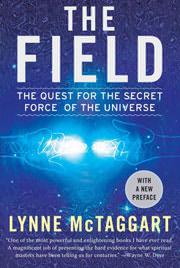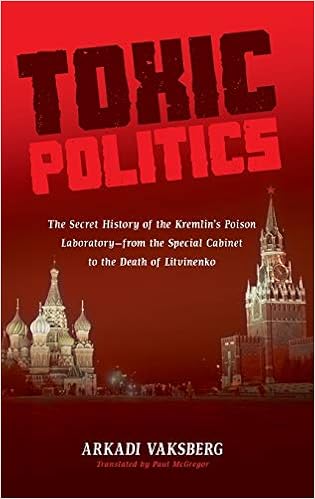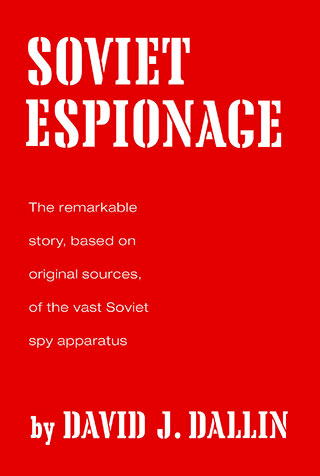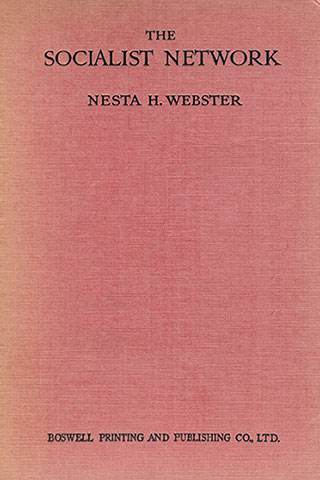6 Signs You May Be a Peaceful Warrior
“Keep me away from the wisdom which does not cry, the philosophy which does not laugh and the greatness which does not bow before children.” — Khalil Gibran.
Peaceful warriors are honorable, courageous and compassionate human beings who make a difference by having lived and lived well. Peaceful warriors are time-tested and pain-sharpened; having gone through hell in order to discover that heaven is within. Wisdom gained through tears.
Philosophy gained through laughter. Greatness gained through virtue. Strength gained through discipline. Peaceful warriors grab power by the throat and shake it into a state of humility, while also hugging the world in a mighty embrace of love and compassion. They bring value to valueless systems while also adding value where it already thrives. Peaceful warriors are more than words can portray. Nevertheless, here are six signs you may be a peaceful warrior.
1) You speak truth to power and always question authority
“Few people are capable of expressing with equanimity opinions which differ from the prejudices of their social environment. Most people are even incapable of forming such opinions.” — Albert Einstein.
You understand that the social environment can be an immensely suppressing thing. It can dictate more than most people imagine. And nowhere is it more dictatorial than in hierarchies of control.
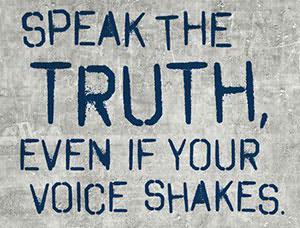 As it stands, most modern day systems are hierarchies of control. In order not to become a victim of such hierarchies, you use your courage as a weapon against suppression. This courage can take on the form of bold audacity and fearless insouciance in the face of rigid rules and unbending regulations. It can take on the form of confident questioning in the face of authority, which verges on impudence. It can take on the form of curious prying into the affairs of power, tantamount to interrogation. It can take on many forms, but it always challenges the powers-that-be to improve itself for the greater health and benefit of humankind.
As it stands, most modern day systems are hierarchies of control. In order not to become a victim of such hierarchies, you use your courage as a weapon against suppression. This courage can take on the form of bold audacity and fearless insouciance in the face of rigid rules and unbending regulations. It can take on the form of confident questioning in the face of authority, which verges on impudence. It can take on the form of curious prying into the affairs of power, tantamount to interrogation. It can take on many forms, but it always challenges the powers-that-be to improve itself for the greater health and benefit of humankind.
As a peaceful warrior, you understand the need to persistently loosen the links that make up the chain of command. Not in order to bring it down, necessarily, but in order to strengthen the leadership withstanding, as well as to instill leadership notwithstanding. You are not intent upon creating followers. You are fully intent upon creating leaders — top to bottom, bottom to top. And you always begin with yourself. As a peaceful warrior you understand as Niels Bohr did that, “Every valuable human being must be a radical and a rebel, for what he must aim at is to make things better than they are.”
2) You fight for the brothers and sisters next to you, not for the chain of command
“The greatest gift you can give someone is your own personal development. I used to say, ‘If you will take care of me I will take care of you.’ Now I say, ‘I will take care of me for you, if you will take care of you for me.’” — Jim Rohn.
You understand that a true warrior does not fight for the chain of command, blindly following orders. A true warrior fights for the brother or sister next to him, challenging orders if need be. In the movie Lone Survivor, starring Mark Wahlberg and portraying the courageous story of Marcus Latrell and Seal Team 10, there is a scene (see attached video) where Matthew “Axe” Axelson says, “I don’t care about the rules of engagement. I care about you, I care about you, and I care about you.”
Although his reasoning is off in this scene, his message is a powerful one: screw the chain of command. You’re my brother. I fight for you. As such, peaceful warriors keep themselves in the best possible shape — mind, body, and soul– in order to be capable of protecting and defending themselves and their fellow man when the proverbial shit hits the proverbial fan.
Peaceful warriors are not about following so called rules of engagement. They are about proactively engaging in order to improve upon existing rules. They don’t go on the offensive because they are told to. They go on the defensive, proactively, because they are compelled to keep their fellow brothers and sisters free. The problem with this scene in particular is a moral one, and two of the greatest problems we face in the world today: militarism, and how some people’s lives are considered more important than others.
As it turns out, the true hero of this story was not the lone surviving Seal, who was militaristic in nature, but Mohammad Gulab, an Afghan villager and a true peaceful warrior who saved the life of Marcus Latrell (more than once), despite the deadly power of the Taliban constantly surrounding his village. He rose to the challenge with a full heart, defending what he thought was right, despite the powers-that-be.
3) You use systems of power to your advantage and then turn the tables
“When the people fear their government, there is tyranny; when the government fears the people, there is liberty.” — Thomas Jefferson.
Nowhere is it written that you cannot use things as a means to an end. And even if it were written somewhere, you would overcome it by adapting to it, rewriting it, and then using it to your own advantage. Good intention is the key.
Whether through school or through the military, you adapt and overcome with the intent of immersing into the systems of power that keep it all propped up, and with the full intent of absorbing as much knowledge as possible in order to eventually use such knowledge to change the system, fully understanding that such change will more than likely go against the existing power structure from which you originally received the knowledge.
As a peaceful warrior, you keep the horse in front of the cart through persistent discipline within particular systems of control in order to one day use the knowledge gained to improve the system for the better, this with the understanding that the system will more than likely not want to change. But you understand that it must change if people are to survive and evolve on a planet that is itself constantly changing and evolving.
Your perseverance will further instill bravery within the already courageous, while keeping the cowards in check despite themselves, and also teaching the powers-that-be a little humility. And it may even have the power to transform cowards into heroes. Like Henry Wadsworth Longfellow said, “Perseverance is a great element of success. If you only knock long enough and loud enough at the gate, you are sure to wake up somebody.”
4) You seek absolute vulnerability as opposed to secure invulnerability
“Only to the extent that we can expose ourselves over and over to annihilation can that which is destructible in us be found.” — Pema Chodron.
You are adept at transforming mistakes into wisdom and fear into courage. You do so not to become a secure invulnerable tank, fearful and certain, but to revel in being an insecure vulnerable human being, courageous and uncertain within a fascinating but ultimately uncertain universe.
You understand that this means failing and failing often, but that the failure will make you stronger as long as you are consistently learning from your mistakes and adapting to and overcoming precarious environments. Like Willa Cather said, “There are some things you learn best in calm, and some in storm.” As a peaceful warrior, you have the ability to learn from both the calm and the storm.
As a seeker of absolute vulnerability, you are not paranoid and hell bent on safety. Rather, you are a proponent of Pronoia (the positive counterpart of paranoia) and hell bent on adventure. You understand that “safety” is usually a persistent cultural spell that must be broken by individuals who seek freedom from social control. As such, your absolute vulnerability directly challenges and stretches comfort zones, both your own and the ones set in place to keep people suppressed and controlled, like the illusion of borders for example, or the law, or the myopic concept of nationality. You challenge them all through your courage to be absolutely vulnerable in the face of the illusion of invulnerability.
5) You are an advocate for nonviolence and civil disobedience
“Civil disobedience is a natural response to a world like ours; it means refusing to be a bystander to the apparent trajectory of the social order. We don’t think twice about the direct action of stopping traffic to protect a child who wandered into it unknowingly; we would practice civil disobedience any day in situations like that, never thinking of standing by or waiting for a majority vote.
The same is true in our movement. We know this system is broken, we know it doesn’t have to be this way and we know there is an alternative. So we stop traffic. The question is not whether we should use civil disobedience as part of our movement’s arsenal — but how, for what, and when.” — Yotam Marom.
As a peaceful warrior you understand, as Noam Chomsky did, that, “States are not moral agents; people are.” As such, you are a moral agent (and sometimes even an amoral agent) on behalf of the people, and never on behalf of the state. In a world where drones are creating more terrorists than they are killing, you understand that this makes us all terrorists by association.
But just because our governments have absolute power that has corrupted absolutely, doesn’t get us, as citizens thereby governed, off the hook for being irresponsible with our own power. Like Howard Zinn wrote, “Civil disobedience is not our problem. Our problem is civil obedience.” As a peaceful warrior, you understand that in order to be responsible with your own power you must be willing and able to use civil disobedience as a nonviolent tool toward ending the vicious cycle of war and violence.
Like Richard Seymour said, “The key question is neither violence nor non-violence, neither legality, nor illegality; it is disruption. Popular movements are engaged in civil disobedience whenever they recognize the society’s dependence on their co-operation, cease co-operating, and actively disrupt its smooth functioning. This moves politicians to spittle-lathered furor. It is the way in which progress is made.” As a peaceful warrior, you are always proactively engaged in making healthy progress.
6) You are an autonomous pioneer as opposed to an adjusted settler
“You can recognize a pioneer by the arrows in his back.” — Beverly Rubic.
You are a forerunner, constantly breaking ground and pushing to innovate where stagnation abounds. And although you are surrounded by adjusted settlers who are hell-bent on remaining stagnant within their creature comforts and secure domains, you persevere nonetheless, knowing that the ability to adapt and overcome is as much for their benefit as it is for yours.
Your autonomy affords you a flexible liberation that those who are dependent on the system simply cannot fathom. And so it is that you are able to withstand the occasional “arrow in the back.” Like Jonathan Swift said, “When a true genius appears in the world, you may know him by this sign: that the dunces are all in confederacy against him.”
As an autonomous pioneer, you have taken on the duty of transforming this confederacy of dunces into a league of champions. And although you are in the minority of inner-directed pioneers, you are a catalyst (a Mover) who seeks to move the majority of settlers into a state of proactive citizenry.
You know that there is a tipping point that only requires ten-percent of the population to tip over into change, and you intend on making that change a healthy one through your own proactive engagement with the world, using the full range of your arsenal, your entire Soulcraftman’s Toolkit, to challenge the people of the world into changing and adapting to healthier ways of evolving in a universe that is constantly changing and evolving.
In the end, you are a pioneer of the tipping point, a tiny creature in a gigantic universe, both with the power and the responsibility to make an enormous difference in the way that universe plays out; because you understand, as only a peaceful warrior can, that you are the universe and the universe is you.
Gary ‘Z’ McGee, a former Navy Intelligence Specialist turned philosopher, is the author of Birthday Suit of God and The Looking Glass Man. His works are inspired by the great philosophers of the ages and his wide awake view of the modern world.
Digital discoveries
- Migliori Casino Online
- Casino Non AAMS
- Siti Casino
- Sites De Paris Sportifs Belgique
- Tous Les Sites De Paris Sportifs Belgique
- Meilleur Casino En Ligne Belgique
- Casino En Ligne Belgique Bonus
- I Migliori Casino Online
- Non Aams Casino
- Scommesse Italia App
- Migliori Casino Online Esteri
- Paris Sportif Crypto Sans Kyc
- Site De Paris Sportif
- Sweet Bonanza Avis
- Paris Sportif Ufc
- オンラインカジノ 出金早い
- Casino Live En Ligne Français
- Site De Paris Sportifs
- Meilleurs Nouveaux Casinos En Ligne
- Casino En Ligne Français
- Casino En Ligne
- Casino Retrait Instantané
- Casino En Ligne Fiable
- Meilleur Casino En Ligne 2026
- Casino En Ligne Retrait Immédiat
- Casino Français En Ligne
- Casino Italia Non Aams
- Casino Con Free Spin Senza Deposito
- Siti Di Scommesse Non Aams
- Migliore Casino Non Aams
- Casino Online Non Aams 2026
- 토토사이트 모음
- Top 10 Trang Cá độ Bóng đá
- Casino En Ligne
- Casino En Ligne France
- Casino En Ligne Argent Réel
- Casino En Ligne Retrait Immédiat 2026
- Nouveau Casino En Ligne 2026
